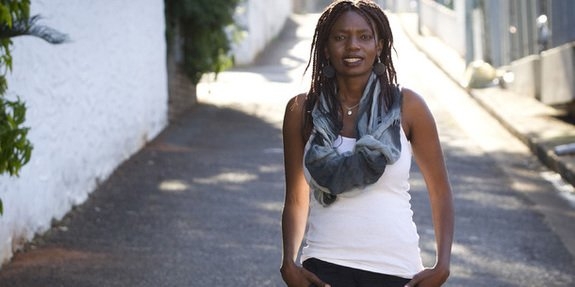In a column in the South African newspaper Business Day, University of Rhodes-based historian Nomalanga Mkhize took issue with the label ‘xenophobia’ that is used to separate good, foreigner-and-human-rights-friendly South Africans from the ‘bad ones’ who have attacked immigrants in that country in recent weeks. She argues that the ‘rainbow nation’ image does not help to deal with South Africa’s history of brutality.
But surely the burning and looting of shops, the storming of people’s homes with axes and knives, the murder of foreigners needs to be condemned?
Of course it must. But I object to a narrative in which we are all good, rainbow-coloured children of Mandela and only a few bad apples commit acts of violence. I object to ‘anti-xenophobia’ marches in which privileged, middle-class people comfortably point fingers at poor people whose daily lives are full of violent experiences.
Is ethnic violence then to be expected from the poor?
Millions of marginalised black Africans in South Africa experience abuse and violence in the work place, in the communities and at home. Systemic racial ideologies and realities keep them in a violent universe without any hope. This ‘rainbow nation’ cannot protect its own –how can it even hope to protect foreigners?
South Africa’s successful racial reconciliation story, the legacy of Nelson Mandela, the human rights democracy, the stable institutions, the progressive constitution, is all a lie?
These are beautiful aspirations. And it is true that some structures here are stronger than in other countries. But others are not –the right to health care, for example. Millions of South Africans don’t have that at all. Calling ourselves special and pretending that we are already better than other countries in Africa, is therefore a lie. Fellow Africans again saw the hypocrisy of all this recently, when Zulu King Zwelithini (a traditional monarch kept in luxury by the South African state) said that ‘foreigners should leave.' He gave his followers the green light to see foreign nationals as a problem. What he said went directly against all the human rights entrenched in our constitution.
If the rainbow nation image is a lie, then what is the truth?
That we are living a post-colonial social crisis which we are not managing. Migration, the battle for resources, ethnic conflict and refugees are problems we all have in post-colonial Africa. We should learn from other African countries, they could offer valuable advice. Look at how Rwanda is dealing with refugees from Burundi now. We can learn from our fellow Africans from Namibia: how does such a dry country manage its water? We are battling with a dysfunctional education system, whilst Zimbabwe a teacher shortage, whilst Zimbabwe has a great teaching tradition. Our students should study the post-colonial experience in other African countries. Our leaders should embrace interdependency with the rest of the continent instead of hiding behind the rainbow nation myth.
The rainbow image and the ‘anti-xenophobia’ campaign are smokescreens that let South Africa’s leaders off the hook?
Yes. Rather than to hide behind these romantic narratives, they should look at the mess the country is in. They should manage the economy and manage migration, rather than to just stand by and let violence break out at the margins of the economy every few years. But I doubt they will feel the desire to do so. They are comfortable, after all.
Is holding such leaders to account not also part of managing the post-colonial experience?
In my column I say that one thing Africans of all countries could do together would be to stand up and fight power abuse and the hijacking of state resources by our elites, the ‘political elders’ who still get by on the ticket that they once fought for our freedom. Our elite and the Angolan one, for example, are very similar. Both drive expensive vehicles over potholes in the road without a care in the world. Corruption is becoming endemic. If our leaders are not respecting the law, how can we expect the poorest of the poor to do so?


